Adam's Heart Valve Surgery Blog – Page 67
Dr. Starnes & I Reconnect At USC Medical Center
By Adam Pick on January 27, 2009
I have to admit… I’m typically a little more relaxed when I make the annual pilgrimage to USC Medical Center to see my surgeon, Dr. Vaughn Starnes, for my check-up.
Since I’ve already seen my cardiologist, Dr. Rosin, I know that my heart is doing very well – after my last echocardiogram (a few weeks ago). Still, I want to make sure that Dr. Starnes is of the same opinion as Dr. Rosin. Plus, it’s always helpful to get consensus that my aortic and pulmonary valve replacements are performing as expected.
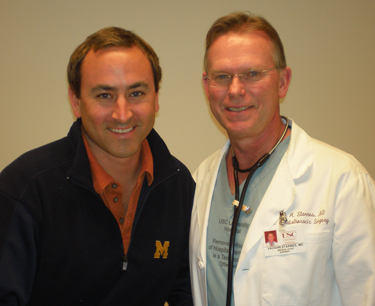
Adam with Dr. Vaughn Starnes (His Heart Surgeon)
Well… I have good news to report!!!
During my afternoon appointment with Doctor Starnes, the Chairman of Cardiothoracic Surgery, he stated, “Your heart sounds great!” As you would expect, I’m very happy right now. In fact, I may just have a large glass of red wine tonight to celebrate. I’m into Pinot Noir these days. I stocked up during the last 5 cent sale at BevMo. 🙂
Keep on tickin!
Adam
Sleep Apnea, Heart Strain, Narrow Heart Valves… Can You Help For Galina?
By Adam Pick on January 27, 2009
Every once and a while I receive a patient question that really, really, really stumps me. In those situations I simply post a blog about the topic to see if YOU have any ideas.
This just happened when I opened an email from Galina that focuses on sleep apnea, heart strain and heart valve function. Do you have any ideas for Galina? Here is what she writes, “Hello Adam… I love your blog and the information from everyone. I’d like to ask you if you have ever discussed sleep apnea and it’s strain on the heart?”
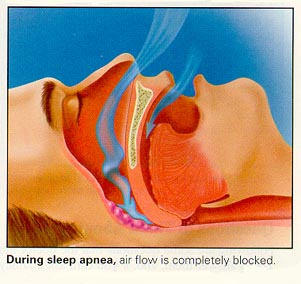
That’s what we have discovered regarding my husband. We are trying a mouth device to help this condition. He has a narrowed aortic valve (stenosis) due to endocarditis and has to be checked regularly. We are here in Perth for the checkup at the moment.
There is also a possibility that a few seizures he has been suffering are related to the sleep apnea, as the brain gets starved for oxygen. Any thoughts or feedback would be very much appreciated. Best, Galina”
Do you have any ideas for Galina? If so, please leave a comment below!
In advance, thanks for your help!!!
Adam
“What About Truck Driving After Heart Surgery?” Asks Ken
Written By: Adam Pick, Patient Advocate, Author & Website Founder
Page Last Updated: June 9, 2025
Ken just wrote me about physical limitations following heart surgery – specifically truck driving after heart surgery. In his email, Ken writes, “I am a truck driver. Will I be able to drive big rigs or not? They are going to replace my aortic heart valve. Thanks Ken!”

So you know, since my aortic valve replacement, I have completely recovered. That said, I have done every physical activity that I enjoyed prior to surgery. That includes Scuba Diving, running, swimming, hiking, biking – the list could go on. My surgeon, Dr. Vaughn Starnes, did not put any physical limitations on me following my Ross Procedure. (Although Dr. Starnes did suggest that I stay away from lifting heavy weights so as to avoid strain on the valve.)
As for truck driving after heart surgery, I don’t see why you would prevented from getting behind the wheel of your rig following surgery. However, I would suggest that you play it safe not sorry. So, please ask your surgeon and cardiologist as to (i) whether or not truck driving after heart surgery should be avoided post-op and (ii) how long after your surgery can you drive a larger vehicle.
Related Links:
- Scuba Diving After Heart Valve Surgery
- Ed Crosses Arctic Circle After Heart Valve Surgery
- Veronika Climbs Mount Everest After Heart Valve Surgery
Keep on tickin!
Adam
“Were You Anxious Before Heart Surgery?” Asks Ann
By Adam Pick on January 22, 2009
If you have an anxious personality, please consider the following…
The time period between your diagnosis and your actual surgery can be a challenging, anxious period.
How do I know? Well, I’m one of those Type A+ personalities. I’m a list maker and a nail biter. (Yes, I know how dangerous that combination is.) That said, I was a nervous wreck during the 4-week period from my second opinion to my actual heart surgery. Thankfully, I was asymptomatic. Other patients are both anxious and suffering from common symptoms related to aortic valve stenosis or mitral regurgitation.

On this topic, I just received an interesting email from Ann.
Anne’s email reads, “Adam, I was just wondering if you became impatient while waiting to have your surgery? I was told this morning that the surgeon would be setting up an appointment to see me the next day or so. He has been out of town. I just feel like I have gone through this so many times that I am ready to get on with the surgery. I tire very easily from the least amount of excursion. Thanks, Ann”
“Deep Breathing Pain After Open Heart Surgery?” Asks Bruce
Written By: Adam Pick, Patient Advocate, Author & Website Founder
Page Last Updated: July 15, 2025
Bruce just sent me an interesting question about chest pain related to deep breathing after heart valve surgery.
His email reads, “Hi Adam, I’m ten weeks into recovery and getting a little nervous – hopefully, for no reason. My surgeon tells me my mitral valve surgery went perfect and that my mitral prolapse is fixed. But, I’m having a lot of chest pain. Specifically, it hurts to take deep breaths. As an active 62-year old, I notice it most during walks as my heart rate increases and I start to breathe heavier. Any thoughts? Thanks, Bruce”

Bruce’s question brings back a distinct memory from my early recovery. In fact, deep breathing pain was one of my biggest complaints during cardiac rehab classes. I would be peddling away on the exercise bike when a sharp, cramp-like pain would flare-up across my sternum and rib cage.
I’d say to Debbie, my cardiac rehab nurse, “Is something wrong with my sternum? I’m feeling a lot of pain when I take deep breaths during exercise?” Debbie reassured me that everything was fine and that it might take some more time for the inside of my upper body to heal and adjust given the trauma of open heart surgery.
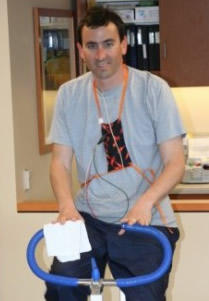
Ultimately, Debbie was 100% right.
So you know, I’m just getting back from a 30-minute swim… It been nearly twenty years now since my surgery. Guess what? No chest pain during exercise!
That said, I would suggest to Bruce that breathing pain after surgery can be common among patients. However, should the pain persist or remain uncomfortable, please visit your surgeon to confirm there are no other issues with your recovery from open heart surgery.
Related Links:
- Vertigo, Headaches & Vision Problems After Heart Surgery
- Surgeon Q&A: High Heart Rates After Heart Surgery
- When Should Patients Start Cardiac Rehabilitation?
Keep on tickin!
Adam
Roy’s Heart Valve Update: From Dubai To London To Glasgow
By Adam Pick on January 13, 2009
From no symptoms in Dubai to aortic valve replacement in London. Here is an interesting patient story from Roy:
Adam,
I was sent for a provisional medical check up in November and much to my surprise – after a 5 minute consultation followed by an echocardiogram – the cardiologist informed me that my aortic valve was virtually wasted.
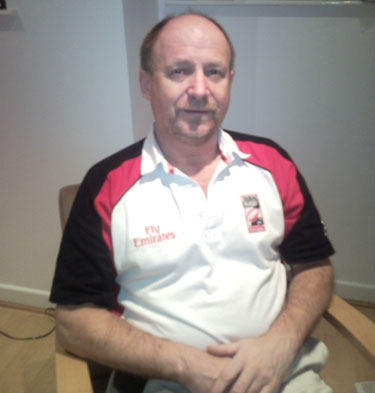
I had few symptoms apart from a persistent cough and shortness of breath following exercise. After the initial diagnosis, I seeked a second opinion but the outcome was unfortunately the same.
We Plan, God Laughs… Really?
By Adam Pick on January 13, 2009
Too often I speak with patients that are incredibly frightened by the thought of heart surgery.
These patients have recently been diagnosed with some form of valve disorder and are, needless to say, depressed by the reality of cardiac surgery in their lives. Some enter denial but many more enter a challenging place of “Why Me? Why Now?”
As many of you know, I’m no Superman. I remember those exact questions rattling my brain in the morning, in the afternoon and even the night leading up to my aortic valve replacement.
Little did I know, during this confusing time, that my heart valve surgery would be the springboard of a new, revitalized and, most importantly, healthy life. I can go on-and-on about the medical miracle known as heart valve surgery. But, for some patients, that praise might fall on deaf ears.

Still, I’m tenacious and committed to helping you through this troubling time. For this purpose, I would highly encourage you, or the person you care for, to read a wonderful book called “We Plan, God Laughs”.
The unique book by Rabbi Sherri Hirsch uses the old Yiddish saying, “We Plan, God Laughs” to express a truth everyone can relate to. The book offers several ideas, analogies and stories which peacefully integrate the placement of cardiac surgery into one’s life. Plus, Rabbi Sherre Hirsch maintains a fun, caring, upbeat and education narrative that makes you want to keep reading and turning pages.
I’m not the most religious person. So, please don’t think I’m looking to convert anybody to Rabbi Hirsch’s core traditions. Instead, utilize this book for its calming effect and its core teaching – no matter how much you plan, there are inevitable twists-and-turns to your life including heart surgery.
I wish you all the best! And, remember… “We Plan, God Laughs!”
Keep on tickin!
Adam
“Would You Do The Ross Procedure Again?” Asks Tom
By Adam Pick on January 13, 2009
I just received the following email from Tom. Tom is an active 44-year old male, investigating his options for heart valve surgery – specifically aortic valve replacement. For those considering the Ross Procedure, I thought you might find this interesting. Tom writes:
“Hi Adam – My wife Christine recently purchased you book and I have almost finished reading it. It is very informative. I had aortic insufficiency diagnosed as a child and I guess it is that time to fix the ticker. I have researched many options and was leaning toward the Ross Procedure, until my cardiologist appointment this morning and my Doc says, “You don’t want that done!” That being said, I was wondering how you are doing with your Ross Procedure? And, if you had to do it again, would you go with the Ross, mechanical or biological valve? Sincerely, Tom”
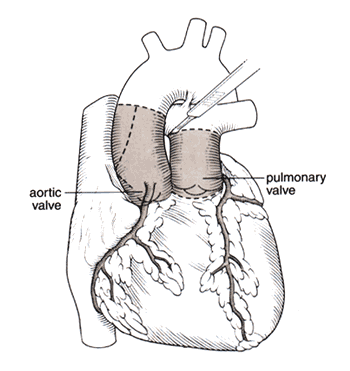
First…Good for Tom! He is taking the time to really do his diligence BEFORE the operation. This is critical for all patients and caregivers preparing for valve surgery. Please understand the pros and cons of each surgical option – especially the differences between mechanical and bioprosthetic valves if you need a replacement.
After Mitral Valve Repair Operation, Joanne Cruises With Barely Visible Scar
By Adam Pick on January 9, 2009
Some patients simply have “It”. The “It” is an incredibly positive attitude towards open heart surgery.
Case in point… Joanne. First, she finds the humor in an incentive spirometer. Then, she takes a celebratory cruise only nine months after mitral valve repair surgery.
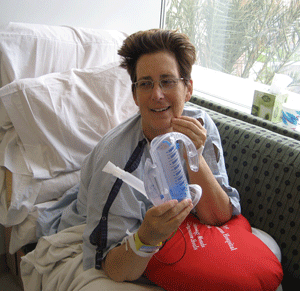
Joanne – Showing Her Incentive Spirometer Trick
I just received this note and picture from Joanne. I thought you might like to read it:
Hi Adam –
A very Happy & Healthy New Year to you and your family!
Thought I’d send you this 9-months-post-mitral-valve-repair photo update. I thought the scar would be more obvious than it is, but it’s good to know that in real life, it isn’t!
True or False: Can Humans Live Without Heart Valves?
By Adam Pick on January 9, 2009
Well… What do you think?
Can humans be born and live without one or more heart valves?
My immediate reaction to that question would be, “Not a chance!”
Then again, we live in a world where anything is possible. On that note, Tori Higgins (pictured below) proves that humans can be born and live without a heart valve.
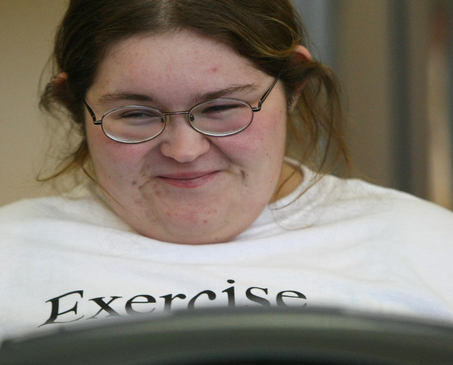
Our Website Mentioned By Dr. David Adams in NY Daily News!
By Adam Pick on January 7, 2009
This is somewhat unbelievable…
I just learned from Gideon S. that Dr. David Adams, Chairman of Cardiothoracic Surgery at Mount Sinai Hospital, referenced my name and this website in the New York Daily News this morning!!!
In an excellent article titled, Weakened Mitral Valves Are Treatable, But Type Of Surgery Makes A Difference, Dr. Adams makes several, insightful points about mitral valve prolapse, traditional mitral valve surgery and recent surgical breakthroughs.
Then, in a section about patient education, the article states, “Dr. Adams also points people to www.heart-valve-surgery.com, an info-packed blog where former patient Adam Pick posts first person testimonials.” 🙂

If you’re not familiar with Dr. David Adams, here are some links that will help you learn more about this valve surgeon guru:
- About Dr. David Adams – New York Heart Valve Surgeon
- Mitral Valve Repair Video By Dr. David Adams
- Dr. Adams’ Website – http://www.mitralvalverepair.org/
Keep on tickin!
Adam
“INR Home Testing Machine For Margaret?” Asks Margaret
Written By: Adam Pick, Patient Advocate, Author & Website Founder
Page Last Updated: May 17, 2025
Patients selecting mechanical heart valve replacements are typically required to monitor their INR levels (international normalized ratio) to prevent risks of blood clotting, hemorrhage or stroke.
To ease this process, home INR testing machines are now becoming more affordable and easy-to-use. That said, here is a patient testimonial from Margaret R. about her experience with a home INR testing machine she just received:
Dear Adam,
I just wanted to let you and everyone else know that I received my INR home machine last week. I had a nurse from the company come to my home and train me on it. It’s just wonderful fast and easy, start-to-finish is less then a few minutes and only requires one drop of blood.
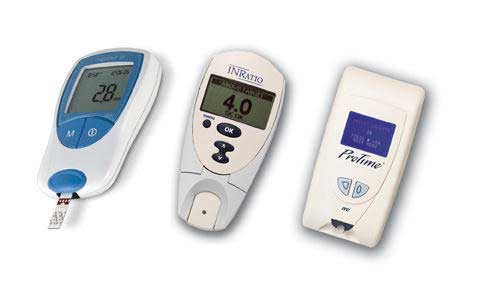
My doctor’s office has been great in getting me set up on the INR home test meter. My insurance company is paying for 80% of the rental cost and I pay 20% – which is only about $26.00 a month.
This amount covers the cost of the rental unit plus supplies of the reader card and needles. If anyone else would like to try and get a home INR machine, here is what I did. I went online and Google’d INR home test machine. The search came up with many options and I called them requesting the forms. They then called my doctor’s office with the information and 4 weeks later it was done.
I’m now enjoying a very long needed break to the veins in my arms and loving it.
Related Links:
Thanks for your book and blog!
Margaret
Robin’s Mitral Valve Repair In India (VIDEO)
By Adam Pick on January 3, 2009
The term medical tourism is relatively new. But, more and more, I am hearing of patients traveling to places like India for surgical procedures including heart valve repair and heart valve replacement.
On this note, I recently saw a video about Robin Steele from Mobile, Alabama. Robin suffered from severe mitral valve regurgitation and a-fib (irregular heartbeats). After evaluating his options and his budget, Robin had mitral valve repair surgery in Bangalore, India at the Wockhardt Hospital, an associate of Harvard Medical International, under the care of Doctor Vivek Jawali, Chief Cardiac Surgeon.
This video describes Robin’s experience before, during and after his mitral valve repair in India. To watch this video, simply press the play button. Also, please make sure the volume on your computer is turned up.
As with any cardiac procedure – in any location – there are advantages and disadvantages. I can understand why patients like Robin utilize medical tourism to (i) save money and (ii) benefit from skilled surgeons, like Dr. Vivek Jawali. I can also understand why other patients (like me) chose to stay local for their valve surgeries.
I hope this video helps explain a little bit more about medical tourism and heart valve repair in India.
Keep on tickin!
Adam
When Was The First Blood Transfusion?
By Adam Pick on January 3, 2009
Since posting Lisa’s mitral valve repair success story, my inbox has been flooded with questions about blood transfusions and blood bank safety like:
- When was the first blood transfusion?
- Who performed the first blood transfusion?
- Are there complications with blood transfusions?
- What are the blood transfusion guidelines?
- Are blood transfusions required during open heart surgery?
These are great questions. However, I’m not going to address all of these questions in a single, very long post. Instead, I’m going to answer these blood transfusion questions one-by-one over the next month in multiple blogs.
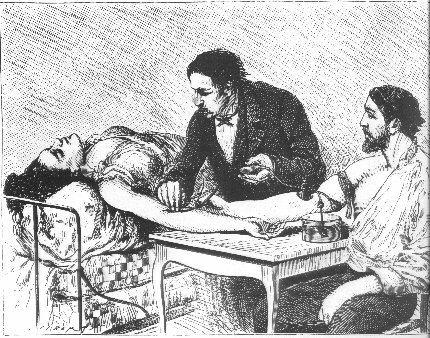
Cheers To A Happy, Healthy New Year!!!
By Adam Pick on December 31, 2008
2009… Here we come!!!
On that note, I want to wish everyone who visits this website – the patients, the caregivers, the nurses, the cardiologists and the heart surgeons – a very happy and very healthy new year!

May this be an incredible year for you and all the people around you!!!
And… Thanks for all your help in 2008! Your thoughts, your ideas and your comments in this blog have made a positive impact on the lives of many, many, many, many, many people around the world!!!
Keep on tickin!
Adam
Lisa’s Mitral Valve Repair, Blood Transfusions and… Christmas Shopping
Written By: Adam Pick, Patient Advocate, Author & Website Founder
Page Last Updated: July 15, 2025
This email just came in from Lisa, a registered nurse from Colorado, who had mitral valve repair surgery less than two weeks ago. I thought you might appreciate reading about Lisa’s experience, her attitude toward heart surgery, and her early recovery. Here is what she wrote:
Dear Adam,
I had my surgery on Thursday, December 11th and things went pretty well. The surgeons were able to repair my mitral valve, which should last 20 years or so before any additional work may need to be done.
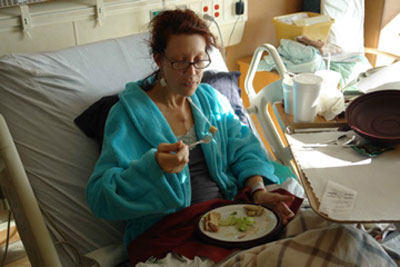
My Annual Echocardiogram With Dr. Rosin
By Adam Pick on December 24, 2008
I’m just returning from my annual echocardiogram with Dr. Ben Rosin, my cardiologist at Torrance Memorial.
As some of you already know, these annual exams are fairly stressful. The last thing I, or anybody, want to hear is that a heart valve surgery re-operation is required.
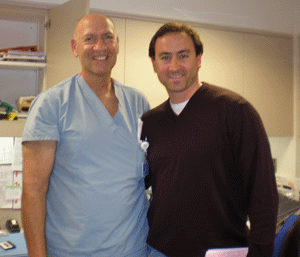
“Can You Get Life Insurance After Heart Surgery?” Asks Jerry
By Adam Pick on December 24, 2008
I just received a strangely coincidental email from Jerry regarding life insurance after heart surgery.
Jerry’s question reads, “I am wondering if you know of the difficulties of getting a term life insurance after heart surgery. I tried to increase the policy I had and was immediately turned down due to my history of heart valve replacement surgery. I would think that I am healthier today than I was four months ago since my bicuspid aortic heart valve has been replaced via the Ross Procedure. And, I have very little risk factors: low cholesterol, within suggested weight, no other disease, never smoked. Have you encountered this before? Or, do you know of any friendly insurance companies?”

“Why does Adam consider Jerry’s email a strange coincidence?” you may be wondering.
True or False: Mitral Valve Replacements Have Only Two Leaflets
By Adam Pick on December 22, 2008
Are you ready for some interesting trivia about heart valve replacement devices?
The mitral valve is the only human heart valve that is bicuspid. Bicuspid means the valve has only two leaflets. Alternatively, each of the other heart valves (aortic, pulmonary, tricuspid) have three distinct valve leaflets – also known as heart valve flaps. Please see the top-side view of the human heart diagram below.
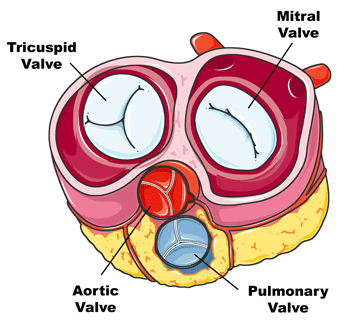
In light of this information, my true/false quiz to you is, “Mitral valve replacements have only two leaflets to best mimic the genetic and evolutionary design of the mitral valve.”
So… What do you think? Is that statement true or false?
Big, Big, Big Boomer Growth Expected For Heart Valve Replacement Industry
By Adam Pick on December 22, 2008
You don’t have to be Warren Buffet to know that investments in heart valve companies may pay off big time in the future.

The wants and needs of the Baby Boomers have triggered almost every financial trend since World War II. Don’t believe me? Consider the Baby Boomers’ impact on the popularity of select automobiles.
In the 1960s, as the Baby Boomers started turning 16, millions of drivers licenses were issued. The Baby Boomers wanted fast, sporty cars. Thus, the wild success of the Ford Mustang.
Then, in the late 1970s and early 1980s, the Baby Boomers had lots and lots of children. Lee Iacocca realized the Baby Boomers’ need for bigger, more convenient cars. Thus, the ridiculous success of the Chrysler Minivan.
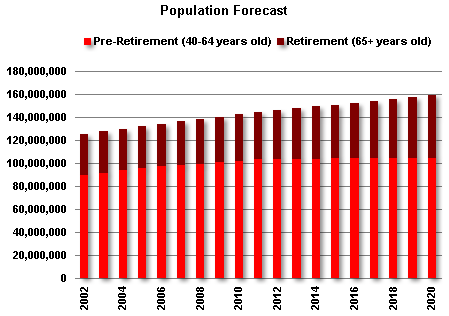
Now, it’s all about health care for the 76 million Americans known as the “Baby Boomers”. When you consider the size of this market and the rampant surge in heart disease, it makes complete sense that the rate of heart valve surgery is going to soar during the next twenty years.





